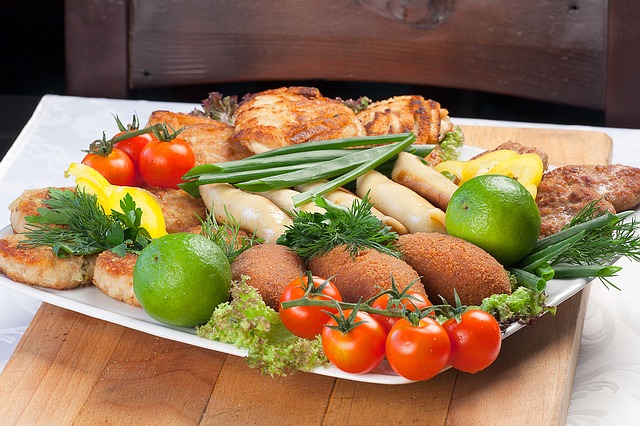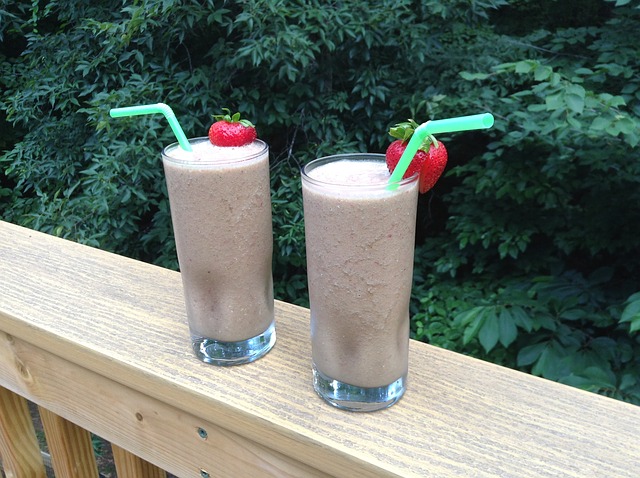When people take the first steps on a weight loss journey, they often do so under the assumption that all they need to do is eat less and move more. This is sound advice, but it is very reductionist. Yes, exercise is important, and burning calories as quickly as you consume them does sound like a reasonable plan; until you start feeling tired and unmotivated for no reason. Despite what some fad diets might have you believe, food is not trying to sabotage your weight loss goals, calories are not evil, and fats and carbs are not the enemy. You need every calorie, every carb, and small servings of fat to give your body energy so you can do your exercise in the first place. Trying to workout with only a few calories in your system is like to expecting a car to go full speed with a tank that’s less than half full – you might succeed for a while, but you’ll burn out sooner.
If you hope to lose weight naturally and keep it off for life, you need to learn to build a healthy relationship with food. As long as you’re eating food that grew in the ground or on trees, swam in the sea, or ran free on the land, you’re already on the right track. To help you further, here are some other ways you can make food an ally in your weight loss journey.
Everything in moderation
As stated above, cutting out fat and carbs from your diet is not a good weight loss plan. The only time these macronutrients start contributing to weight gain is when you eat too much of them, and this applies to any food group. Healthy eating is just as much about how much you consume as it is about what you consume. Say you decide to make a vegetarian lasagna at home, but you use half the amount of cheese you normally use and you serve it with salad instead of garlic bread; the meal is healthy, but you’re still going to gain weight if you have a massive portion of lasagna and salad. One way to monitor your portion size is to eat only half of what you’ve served yourself. After a week or so, you may realise that you’re feeling perfectly satisfied with small portions, and maybe a little less lethargic.
Vitamin supplements
When hoping to slim down quickly, a lot of people turn to protein shakes and other supplements to keep their body nourished, but without consuming too many calories. However, the clue is in the name; supplement. Products such as powders, energy bars, or vitamin pills are intended to fill gaps in nutrition, not to replace food completely and become the body’s sole source of these nutrients. While there can be a place in our diets for dietary supplements – especially if you’re deficient in something – food is always supposed to be the main supplier of these essential nutrients.
When the food on the plate falls short and doesn’t include essential nutrients like calcium, potassium, vitamin D, and vitamin B12, a supplement can help take up the nutritional slack. Vitamin and mineral supplements can help prevent deficiencies that can contribute to chronic conditions. Supplements are also useful for when you’re working out.
Post-workout nutrition
Every time you complete an intense workout, body tissue gets destroyed and the only way to build it up again is to consume a lot of protein. While it would be easy to eat more meat, broccoli, and other protein-rich foods, many athletes instead choose to drink a protein shake after their workout because it doesn’t require any digestion and just goes straight to the muscles. Visit http://aretheyonsteroids.com/crazy-bulk-reviews/ for an example of what a protein shake contains, but a good one should have all natural ingredients such as whey, soy, or casein protein.
Once the muscles have received the nutrients they need, you should also focus on your post-workout meal. As all types of exercise use carbohydrates for energy, muscle carbohydrate depletion is inevitable. Therefore a post-workout meal high in carbohydrates is required to refill muscle carbohydrate/energy stores. However, you shouldn’t assume that a carb-rich meal should also be high in calories. The best post-workout meals that incorporate carbohydrates and protein could range from a smoothie made with half of a banana, whey protein and milk; stir-fried vegetables with 2 to 3 ounces of tofu; 2 to 3 ounces of chicken breast with a small sweet potato; or oatmeal with a 1/2 cup of cottage cheese.
Avoid “diet” foods
You might think you’re treating yourself and still being good by having a diet coke instead of the full fat version, but you’re actually doing more harm than good. Researchers at Cornell University found that overweight people who choose low-fat versions of snack foods rather than the regular kinds consume, on average, twice as many calories. This is because most companies add twice as much sugar to these sweet products to improve the flavour after the “fat” has been removed.
The trick is to never deny yourself any sweet treats; even though it might not be healthy, it’s far better to have a small slice of cake when you want it, than to go weeks craving cake and eating too much to reward yourself for abstaining for so long. As long as you’re still within the limit of your recommended calorie intake, you’re not doing yourself any harm. If you still feel guilty about giving into temptation, then just add ten minutes to your usual workout to burn off the calories.
Drink plenty of water
We’ve been reminded over and over again that we often mistake hunger for thirst, yet many people still aren’t reaching out for a bottle of water. Some try to quench their thirst with juice or iced tea, without realising that these beverages are also filled with sugar. If water is too boring for you, add fresh fruit for a refreshing and healthy infusion.








Speak Your Mind